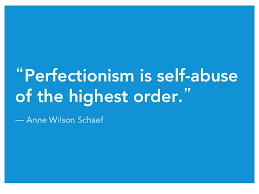About 2 years ago I had an epiphany while soaking in my bathtub—seemingly my favorite place for epiphanies. I was 30, had a high paying job, a beautiful house, a supportive husband, good friends, an idyllic place to live, contemplating children, and yet, alas…I was fizzling, tired, and burnt out. A classic case of perfectionism hitting the wall. My body, my mind, and soul had been aching for change, but guilt sprinkled with denial and social expectations kept me stuck. Yet that evening in the bathtub, I finally gave myself permission to feel the dichotomy, to sit with the discomfort, and to plot a plan of action.

Our cottage now…

The house that was with the great bathtub…

Presenting She Soars Psychiatry, LLC
Fast-forward to the present day. I got rid of my 4-bedroom house, moved into a cottage of sorts, got rid of my job, started a business aligned with my passions, decided my parental energy was best spent on dogs, did hold on to my husband, but ultimately began a process of sorting and shedding the layers of ‘shoulds’ and put a question mark after the social expectations that seemed so important. I even parted with my bathtub for a standup shower…this was a BIG DEAL.

My husband also enjoyed the tub…permission was not obtained to post this photo…
I realize my shift is a privilege. I was able to leave my bureaucratic workplace and carve out my own niche. I had a supportive family, I was able to ‘follow my heart’, I had resources, and I recognize my ability do so is an impossibility for many. How can we then maintain a level of sanity, contentment, and balance in the midst of work, deadlines, pressure, interpersonal stress, preserving our reputation, relationships, and oh yes, going to the gym, meditating, and drinking our green smoothie?
Maintaining a work-life balance and emotional wellness is not an accomplishment that is one day reached and completed, but a daily, intentional endeavor. The following principles are what I both strive for and teach my many clients navigating this tricky proposition and trust me, I am in no way on a pedestal…
- Prioritize non-negotiables: What are those things that must take place of be present for you to feel grounded? Is it your morning run? Your 5-minute meditation? Scribing in your journal? Your favorite tunes? Prayer? Become familiar with your non-negotiables, share them with your family members, schedule them, make them habits. Horses, running, and nature happen to be personal faves.
- Find a tribe: We are social beings and as much as you feel like you thrive as an introvert, the need for socialization is etched into your genetic code. Perhaps your tribe is small, perhaps large, but do not try to go at life’s peaks and valleys alone!

- Goodbye perfectionism: Perfectionism is the fast track to burn out. The perfectionist in me still loves to try to resurface especially in the face of uncertainty or doubt. All or nothing, black and white, I must do X, Y, and Z to be successful…all classic perfectionistic mindsets. You run a race where the finish line keeps moving. You operate in hypervigilance and competition. Contentment is fleeting if ever
 present. You are often exhausted. Your work may prosper, but your health, family, relationships, and contentment will almost surely suffer. Recognize that perfectionism is energy-depleting and not completing. Question your version of success.
present. You are often exhausted. Your work may prosper, but your health, family, relationships, and contentment will almost surely suffer. Recognize that perfectionism is energy-depleting and not completing. Question your version of success. - Become mindful: We live in a world of noise, chaos, and distraction. Many of us are more comfortable in noise than we are in silence. Many of us fear solitude without distraction as it forces us to confront our own thoughts. We do not heal by avoidance, but by awareness. Take 5 minutes of your
 busy day to focus on your breath, take a sensory inventory (what are you seeing, smelling, tasting, hearing?), practice gratitude, be present.
busy day to focus on your breath, take a sensory inventory (what are you seeing, smelling, tasting, hearing?), practice gratitude, be present. - Be open and stay flexible: In my opinion the idea of ‘finding your true self’ as if that self were a stagnant being waiting for you over the horizon is overrated. You do not have to live to work…working to live is just fine, too. There may not be a perfect job or a perfect path. Life happens and inevitably, we will go through change, transformation, epiphanies, and growth. It is okay that a once upon a time passion becomes less exciting, or your beliefs evolve, or your relationships change. Be open to this change and recognize that decisions you make today may seem silly in retrospect. Such is life. Embrace the gray when the tendency may be compartmentalize life to black and white. Be gentle with yourself.

Ultimately, emotional wellness and maintaining balance is a spectrum complicated by the unpredictability of life. Regardless of where you are on the spectrum, do not be afraid to feel, to love, and to give yourself permission to take action. I look forward to hearing about your bathtub epiphanies.
As always thanks for listening.
With gratitude, 
Audry Van Houweling, Owner & Founder, She Soars Psychiatry, LLC located in Sisters & Silverton, Oregon www.shesoarspsych.com






